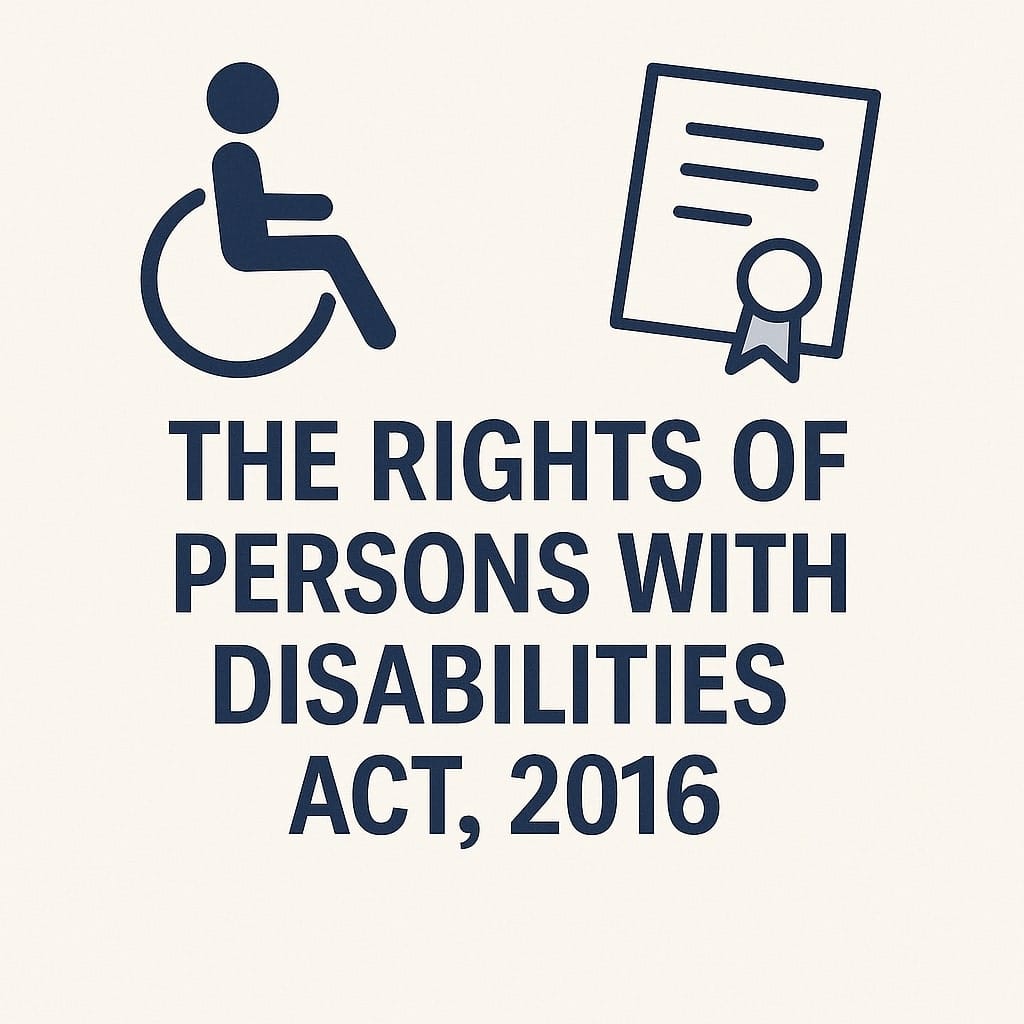
Background
(a) Respect for inherent dignity, individual autonomy including the freedom to make one’s own choices, and independence of persons;
(b) Non-discrimination;
(c) Full and effective participation and inclusion in society;
(d) Respect for difference and acceptance of persons with disabilities as part of human diversity and humanity;
(e) Equality of opportunity;
(f) Accessibility;
(g) Equality between men and women;
(h) Respect for the evolving capacities of children with disabilities and respect for the right of children with disabilities to preserve their identities;
Rights of Person with Disabilities as per RPWD
Persons with disabilities are entitled to equality before the law and the same legal protection as others. The Act prohibits discrimination in areas like employment, education, public access, and essential services. It also ensures that no person with a disability is denied any right or benefit available to others.
It ensures that the Government and local authorities take necessary steps to uphold equal rights for women and children with disabilities, in line with those available to others.
Persons with disabilities have the right to live independently within the community. The Government must ensure that they are not forced into any specific living arrangement and are provided access to various support services such as in-house, residential, and community-based assistance—tailored to their age and gender.
It safeguards persons with disabilities from cruelty, abuse, torture, or any degrading or inhuman treatment.
The Act requires the Government to take active measures to protect persons with disabilities from all forms of abuse, violence, and exploitation. Key provisions include:
Anyone (including individuals or registered organizations) who suspects or witnesses abuse can report it to the local Executive Magistrate, who must take immediate steps for protection, such as:
Police officers who become aware of such cases must inform the person about:
If the act is found to be a criminal offence, the Executive Magistrate can forward the case to the appropriate Judicial or Metropolitan Magistrate.
Persons with disabilities must be equally protected and kept safe during situations like natural disasters, armed conflicts, humanitarian crises, and other emergency conditions.
No child should be separated from their parents solely due to a disability. If the parents are unable to care for the child, the competent court may place the child in the care of close relatives, or in exceptional cases, in a shelter home managed by the government or a non-governmental organization.
No person with a disability can be subjected to any medical procedure that results in infertility without their informed consent.
The Election Commission of India and State Election Commissions must ensure that all polling stations are accessible to persons with disabilities and that all election-related materials are easy for them to access and understand.
The Act mandates that persons with disabilities must be able to access courts, tribunals, commissions, and other legal or investigative bodies without discrimination.
To support this, the Government is required to:
Additionally, steps must be taken to:
Persons with disabilities have the equal right to own or inherit property, manage financial affairs, and access loans, mortgages, or other forms of credit. The law also ensures their full legal capacity, recognizing them equally before the law in all aspects of life.
Supporters involved in financial or property matters must:
Persons with disabilities who are unable to make legally binding decisions, even with support, may be provided a limited guardian—a joint decision-making arrangement based on trust and the person’s will. All guardians henceforth are deemed to act as limited guardians, with the right to appeal decisions if needed.
The Government must appoint authorities to raise public awareness and encourage community support for persons with disabilities in exercising their legal rights. These authorities are also responsible for establishing appropriate support systems, especially for those living in institutions or requiring high levels of assistance.
Registration of Institutions for Persons with Disabilities
Procedure for Registration
4.Validity And Renewal Of Registration:
Penalties & Punishments
For Contravention of provisions of act or rules or regulations made thereunder:
For Fraudulently Availing Any Benefit Meant for Persons with Benchmark Disabilities (Section 91)
Disclaimer: The information contained in this Article is intended solely for personal non-commercial use of the user who accepts full responsibility of its use. The information in the article is general in nature and should not be considered to be legal, tax, accounting, consulting or any other professional advice. We make no representation or warranty of any kind, express or implied regarding the accuracy, adequacy, reliability or completeness of any information on our page/article.